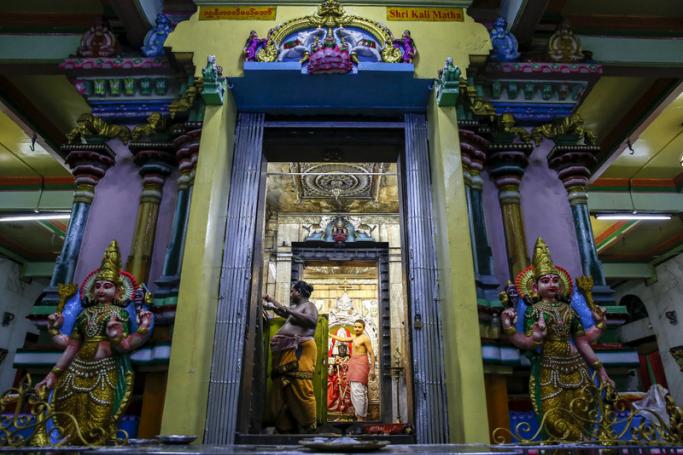Theint Wadi is a Hindu girl living in Yangon who has long felt that she was “different”.
In the general scheme of things, Hindus don’t have it too bad in Myanmar when it comes to discrimination. This may be a Buddhist-majority country with compassion at the centre of its heart but minorities, most notably Muslims and Christians, can face problems.
Hindus, however, recognize that the similarities between the Buddhist and Hindu religions mean they fare better than most, as Theint Wadi (a pseudonym) notes. But, still, there is division.
“We (Hindu women) lighten our skin with ‘Mehendi Dye’ at weddings, Deepavali festivals and Sankranti (The Festival of Harvest) to look elegant. When I went to school with the Mehendi, some friends asked me questions. I was treated strangely. As a young person, I used to argue with them,” said Theint Wadi.
“If all children knew the traditions of different religions, we would not have religious arguments. Traditions are good to learn and it would be better if one shares different things and exchanges knowledge of cultures with others,” she told Mizzima.
“In some workplaces, some people looked at me with strange eyes and I heard some colleagues calling me ‘Kalarma’ (a contemptuous term for a female Indian or female Hindus and Muslims) behind my back.”
But there is a saving grace.
“Hinduism has similarities with Buddhism practiced by Burmese people. That's why we were not severely discriminated against as badly as other religions (such as Muslims),” said Theint Wadi.
Part of the problem for minorities is the legacy of decades of rule by the military that put the Buddhist religion at the core of their identity. Successive governments highlighted only Theravada Buddhism which is practiced by 88 percent of the population. Most of the Burmese, Rakhine (Arakanese), Shan, and some groups of Kayin (Karen) and Chinese Myanmar people believe in Buddhism. There are minority groups who worship Christianity, Islam and Hinduism. And minority groups continue to suffer various degrees of religious discrimination in Myanmar.
Along with Buddhism, Hinduism was established in the territory of Burma during ancient times. After Burma gained independence from the British, and after the Burma Socialist Programme Party led by General Ne Win gained power, the government drove out about 300,000 Indian Hindus and Muslims and 100,000 Chinese from Myanmar in 1963. Complicating the issue for Hindus, India’s policy of supporting democratic movements in Myanmar has also led to further persecution.
Hinduism is practiced by 1.7 percent of the population of Myanmar. The religion has been influenced by elements of Buddhism, with many Hindu temples in Myanmar housing statues of the Buddha.
Theint Wadi says she has sought to look into the similarities between Buddhism and Hinduism and discuss the issue. “But when I told them that some Buddhist concepts were adopted from our Hindu concepts, there could be little problems. I learned about the similarities [between the two religions] from adults. I also heard that Yama Zattaw – an ancient Buddhist Jataka Story of Theravada Buddhism – was derived from Ramayana Hindu culture, which are also adopted by Burmese literature.”
“Most of the Hindu gods are also worshiped by the Burmese. In Hindu temples, anyone can come and pray for one’s wish regardless of one’s religion. We welcome everyone without discrimination. We are even pleased with their belief in our religion. Although we are a minority, we do not differentiate between this or that religion. Thus, we also want to be treated as human beings without discrimination.”
In modern-day Myanmar, most Hindus are found in Yangon and Mandalay. Ancient Hindu temples exist in other parts of Myanmar, such as the 11th century Nathlaung Kyaung Temple dedicated to Vishnu in Bagan.
At a young age, Theint Wadi was taught to respect and value her religious beliefs by her parents. Thus, when she faces religious discrimination over being a Hindu, she is resolute in her position.
In addition to her religion, she also learned about the different traditions of other religions. She said she always treats people of different religions respectfully.
She said it is necessary to pay respect to other religions, but she would cut off relationships with any friends or acquaintances who disrespect her religion, Hinduism.












